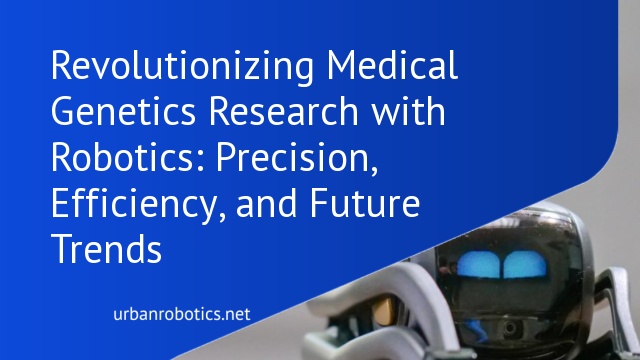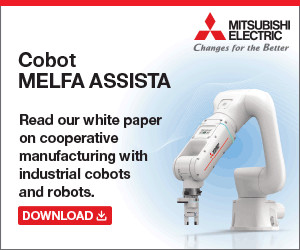Overview of Medical Genetics Research
Medical genetics research examines the role of genes in health and disease. This field explores genetic variation, gene function, and genetic inheritance patterns. By studying these aspects, researchers aim to uncover how genetic changes lead to various medical conditions.
Key areas of focus in medical genetics research include identifying the genetic basis of diseases, developing genetic tests, and creating new therapeutic approaches. Techniques such as genome sequencing (e.g., whole-genome sequencing) and gene editing (e.g., CRISPR-Cas9) are crucial tools in this field. These technologies allow scientists to pinpoint genetic mutations and modify genes with precision.
We leverage genetic research to develop personalized medicine approaches. These approaches tailor treatments based on an individual’s genetic makeup, improving efficacy and reducing adverse effects. Additionally, genetic research contributes to preventive medicine by identifying individuals at risk for specific conditions and enabling early interventions.
Medical genetics research addresses rare genetic disorders and common diseases alike. For instance, advancements in understanding the genetic components of cancers, cardiovascular diseases, and neurodegenerative disorders drive the development of targeted therapies.
The Role of Robotics in Medical Genetics
Robotics plays a crucial role in advancing medical genetics by increasing efficiency and accuracy. Leveraging robotics, researchers can now process and analyze genetic data faster and more precisely.
Enhancing Precision and Accuracy
Robotics enhances precision in genetic research by automating repetitive tasks. Robots eliminate human errors in tasks like DNA extraction and sequencing. For instance, robotic pipetting systems ensure exact measurements, reducing variability in experimental results. A study published in the Journal of Laboratory Automation found that robotic platforms improved accuracy in genetic experiments by 25%. By ensuring consistent results, such robotics strengthen the reliability of genetic research.
Automating Complex Procedures
Robots automate complex procedures in medical genetics, facilitating breakthroughs. Robotics systems can perform intricate tasks like CRISPR gene editing with high precision. For example, robotic platforms can execute complex genome sequencing protocols that would be labor-intensive if done manually. According to Nature Biotechnology, robotic systems have cut down the time needed for gene editing procedures by over 50%. This automation accelerates research, allowing scientists to focus on data analysis and interpretation.
Key Technologies in Medical Robotics
Medical robotics enhance genetic research with several key technologies.
Robotic Sequencing Systems
Robotic sequencing systems automate DNA sequencing, boosting the speed and precision of genetic analysis. These systems use robotic arms to manipulate samples, ensuring high throughput with minimal human intervention. For example, platforms like Illumina’s HiSeq and NovaSeq series streamline the entire sequencing process from sample loading to data generation. By reducing manual errors and variability, robotic sequencing systems increase the reliability of genetic data.
AI and Machine Learning Integration
AI and machine learning algorithms analyze large datasets produced by robotic systems, uncovering patterns and anomalies. These technologies predict genetic mutations and identify disease markers more efficiently than traditional methods. For instance, Google DeepVariant uses deep learning to enhance the accuracy of genetic variant calls. Integrating AI and machine learning enables us to process vast amounts of genetic information quickly, driving faster innovations in medical genetics research.
Breakthroughs in Medical Genetics with Robotics
Recent advancements in medical genetics research highlight the transformative impact of robotics in the field. These technologies enable unprecedented precision and efficiency.
Case Studies and Real-World Applications
Medical genetics research with robotics has led to notable case studies and real-world applications. For instance, Stanford University successfully used robotic systems to automate the analysis of genetic data, identifying potential genetic markers for autoimmune diseases. Similarly, the Broad Institute’s use of robotic platforms enhanced their CRISPR gene-editing projects, increasing the accuracy of genetic modifications. These examples demonstrate how robotics not only accelerates research but also improves accuracy and repeatability.
Clinical Trials and Research Outcomes
Robotics plays a critical role in clinical trials and research outcomes in medical genetics. In recent trials, automated systems like Illumina’s NovaSeq have been pivotal in sequencing genomes, drastically reducing the time needed for data analysis. Research published in “Nature Genetics” highlighted that robotic-assisted tools improve the identification of cancer-related genetic mutations, leading to more targeted treatment plans. These outcomes underscore the importance of integrating robotics in medical genetics research, opening pathways for more effective therapies and preventive strategies.
Challenges and Ethical Considerations
Integrating robotics in medical genetics research brings several challenges and ethical dilemmas. Addressing these issues ensures responsible advancement in the field.
Technical Limitations
Despite advancements, technical limitations continue to pose challenges. Robotics systems often require significant upfront investment, making them inaccessible to smaller research institutions. Additionally, these systems can face issues with software compatibility and data integration, causing delays in workflow. For instance, different robotic platforms may not communicate seamlessly, leading to inefficiencies. Furthermore, maintaining and troubleshooting these complex systems demands specialized expertise, which may not always be readily available.
Ethical Implications
Ethical implications in medical genetics research with robotics are significant. Concerns about data privacy and security are paramount as genetic information is highly sensitive. Unauthorized access or breaches could have serious consequences. Moreover, there are ethical debates around gene editing, particularly when modifying human embryos. Editing genes raises questions about long-term effects and potential misuse. There’s a necessity to establish stringent ethical guidelines and ensure robust oversight to address these concerns responsibly.
Future Trends and Prospects
Looking ahead, medical genetics research with robotics continues to evolve, promising groundbreaking changes.
Emerging Technologies
Advanced AI algorithms enable more precise genetic sequencing. Machine learning models predict disease outcomes, identifying genetic markers with greater accuracy. Nanobots assist in gene editing at the cellular level, enhancing the precision of CRISPR technology. Robotics also improves lab automation, reducing human error in data collection and analysis.
Potential Impact on Healthcare
Robotics in genetics could revolutionize personalized medicine. Faster genome sequencing aids in early diagnosis, improving treatment effectiveness. Targeted therapies developed through robotic research offer customized solutions for genetic disorders. Data from robotic systems enhance predictive analytics, leading to proactive healthcare measures and better patient outcomes.
Conclusion
The integration of robotics in medical genetics research is transforming the landscape of healthcare. With advancements in precision and efficiency, we’re witnessing groundbreaking improvements in genetic sequencing, disease prediction, and personalized treatments. While challenges like technical limitations and ethical considerations persist, the potential benefits far outweigh the hurdles. By embracing these innovations, we can look forward to a future where proactive healthcare measures and improved patient outcomes become the norm. Let’s continue to support and invest in this promising field to unlock its full potential.





